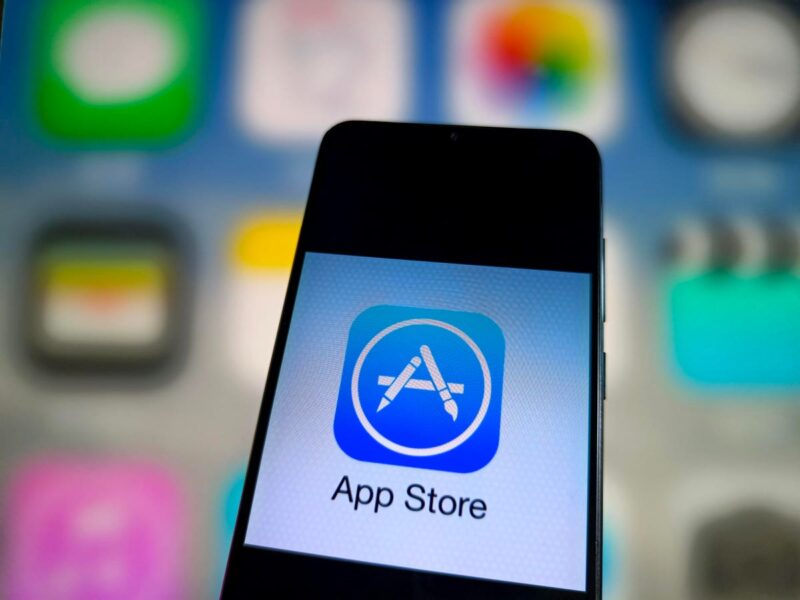SUQIAN, CHINA – SEPTEMBER 3, 2024 – Illustration taken on September 3, 2024 shows the Apple App Store in Suqian, Jiangsu province, China. China still applies the world’s highest Apple tax rate. (Photo credit should read CFOTO/Future Publishing via Getty Images)
CFOTO/Future Publishing via Getty Images
When 55 Chinese iPhone users accused Apple of abusing its market power this autumn, they turned to a familiar name: Wang Qiongfei, the lawyer who led China’s first private antitrust case against Apple four years ago. Now Wang is back, spearheading a new public complaint to the State Administration for Market Regulation (SAMR), China’s top antitrust agency.
The filing alleges that Apple continues to enforce monopolistic practices in its Chinese App Store—charging excessive commissions, restricting payment methods, and blocking third-party app distribution. In Wang’s words, Apple has “turned its walled garden into a tax on digital life.”
A Familiar Battle, Now Global in Scale
Wang, founding partner at Zhejiang Kin Ding Law Firm, first challenged Apple’s 30% in-app commission in 2021 on behalf of a consumer identified as “Jin.” That case was small but symbolically powerful—it opened a door for consumers frustrated by Apple’s near-total control of its digital ecosystem.
This time, the scope is far wider. The new complaint accuses Apple of “abusing a 100% dominant position” in China’s iOS app market, alleging that users can only download apps through Apple’s store and must pay via its own in-app system—at what remains the world’s highest commission rate. Wang’s team is asking regulators to open the platform to third-party app stores and payment providers, echoing reforms that Apple has already been forced to adopt in the U.S., EU, Japan, and South Korea.
Those concessions abroad were driven by court rulings and regulatory fines: a U.S. federal court reaffirmed that Apple must allow links to outside payment systems; the European Commission hit Apple with a €500 million fine under the Digital Markets Act; and Japan’s Fair Trade Commission has given Apple until December 2025 to enable third-party stores.
By contrast, China—Apple’s second-largest market, contributing nearly one-fifth of its global revenue—has yet to see similar policy shifts. Wang argues that’s no accident: “Chinese consumers are still paying the highest digital tax in the world,” he wrote, estimating that in every $10 Apple earns in China, $1 comes from App Store commissions—twice the rate in Europe.
Regulatory Timing—and Trade Tensions
The timing is especially sensitive. Apple’s China revenue dropped 11% year-on-year in the first quarter of 2025, hurt by stiff competition from Huawei’s HarmonyOS and weakening smartphone demand. Tim Cook’s spring visit to Shanghai was aimed at repairing relationships and discussing AI and eSIM rules that increasingly shape Apple’s operating landscape.
But the lawsuit arrives amid a renewed flare-up in U.S.–China trade tensions, with both governments brandishing tariffs and tech restrictions as political tools. On October 10, SAMR also opened an antitrust investigation into Qualcomm, tied to its acquisition of Israeli V2X chipmaker Autotalks, citing a failure to properly notify regulators under China’s Anti-Monopoly Law. The timing—just before a new round of trade talks—highlighted Beijing’s readiness to use competition enforcement as leverage in its broader strategic tug-of-war with Washington.
In that context, taking on Apple serves a dual purpose: defending consumer rights at home while subtly reminding Washington that U.S. tech giants remain within Beijing’s jurisdiction.
What’s at Stake for Apple—and Beijing
If SAMR launches a formal probe, Apple could face a China-specific version of the global antitrust squeeze it’s already enduring. Analysts estimate Apple earned $6.44 billion in App Store commissions from Chinese users in 2024—around 10% of its local revenue. Cutting the fee from 30% to 10% would wipe out roughly $4.3 billion annually, a painful hit to a services segment that has become Apple’s profit engine as hardware sales stagnate.
China’s regulators could go further than Europe’s reforms by mandating both third-party payments and sideloading, dismantling Apple’s tight grip on app distribution. Such an outcome would erode one of Apple’s most lucrative and strategically defensible business units—and likely embolden regulators elsewhere to follow suit.
For Beijing, the calculus is more layered. Pursuing Apple bolsters China’s narrative of fair competition and consumer protectio. At the same time, it allows Chinese authorities to demonstrate that foreign dominance will not go unchecked in critical digital markets.
Apple insists its walled garden serves users, not shareholders—funding privacy, security, and fraud prevention systems. But that argument is losing traction as global regulators increasingly view Apple’s safeguards as gatekeeping by design, built as much for control as for consumer protection.
A Legal Test with Geopolitical Undertones
Wang Qiongfei’s campaign is more than a consumer lawsuit—it’s a barometer of where U.S.–China tech relations are heading. For two decades, Apple has walked a delicate line: deeply dependent on Chinese manufacturing while operating its App Store under U.S.-centric rules. That duality insulated it from the kind of scrutiny faced by local players like Tencent and Alibaba. Now, that insulation appears to be eroding.
If SAMR accepts Wang’s complaint, it would be the first application of China’s antitrust playbook against a foreign platform of Apple’s scale, signaling that global companies can no longer assume regulatory leniency.
Meanwhile, Washington has continued to tighten export restrictions on advanced chips, fueling Beijing’s drive for tech self-reliance. Against this backdrop, Apple’s predicament reads less as a corporate dispute than as another chapter in an intensifying economic cold war, where law and leverage increasingly intersect.
The Bottom Line
Apple’s fight in China mirrors a broader shift in global tech governance. Once untouchable, the company now faces coordinated regulatory fire from multiple directions. For Beijing, Apple’s case offers a timely opportunity to showcase parity with Western regulators—asserting that no firm, domestic or foreign, stands above China’s competition law.
Apple’s future in its second-largest market now hinges on whether it chooses cooperation or confrontation. Modest concessions—like limited third-party payments or lower commissions—could preserve stability and profits. Digging in could invite a deeper restructuring of its entire services model.
Either way, the outcome will resonate beyond China. The world’s most profitable digital toll booth is under siege, and the question is no longer whether Apple can defend its 30% cut—but whether the App Store’s golden era is nearing its end.









